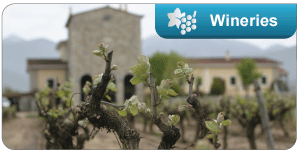The Greek growth
While some regulations placed on viticulture throughout history have been irrational, others have been very logical. One such practical regulation is controlling the “protected designation of origin” of a particular wine. A protected designation of origin (PDO) is part of a European Union law that protects the “official origin” and therefore the reputation and quality of products from a particular region. This particular regulation is very logical because people knew, even in Homeric times, that the soil-climate characteristics (terroir) and the vine variety needed to produce certain wines can only be done in particular regions. It is because of this regulation that Greece has been able to develop, perfect, and protect the type of soil-climate necessary for a truly excellent Greek wine. This regulation has also prevented other farms in different locations, but with similar vines, from falsely using a particular Greek brand name (or PDO) because they do not meet the same standards of quality and special characteristics that are necessary for optimal growth production.
If it were not for human interventions with the creation of these PDOs, there would not have been such great developments and improvements in the variety of Greek growths present today. The diverse, rich nature of Greek terroirs was almost depleted by mass production, but in the 1970s more regulations for high quality wines from specific regions were created. These new regulatory measures called VQPRD (Quality Wine Produced in Specified Region) and VLQPRD (Liquor Wine Produced in a Denominated Region) —both referred to today as PDOs—protected both local Greek varieties and the regions where they were traditionally cultivated. Because of these demands for authentic and high quality wines, the Greek growths have expanded to include several hundred varieties—more than forty of which are widely used in the production of PDO wines.
The Greek wine industry is still relatively small; the 7,535,000,000 ft² of Greece’s various vineyards only represent approximately 2% of those found in the EU, and the same applies to Greek wine production (about 10,567,000 gallons). The Greek vineyard is divided into small plots (vineyard “islets”) which are further divided into even smaller sections found mainly on mountainous and semi-mountainous regions in Greece. According to data compiled in 2008, the country’s total number of vineyards is estimated to be about 147,000. Since Greece’s wine operations are small in scale, the country is actually an optimal place for alternative farming practices. Smaller farms need less synthetic interventions and are generally more sustainable. In addition to the size of the operations, as a country Greece boasts many conditions which naturally lend themselves to alternative farming practices. Because of Greece’s unique landscape relief, the strong sunshine, and the powerful wind currents, any diseases that plague the grape vines can be treated with mild or very mild interventions. Not only are smaller farms and alternative farming practices beneficial for the earth, but they also help to handcraft Greek growths of superior quality. Hence, it is essential for Greece to continue to use and develop alternative farming practices—doing so will result in even greater standards in viniculture that respect both the earth and the gustatory explorations of the consumer.



